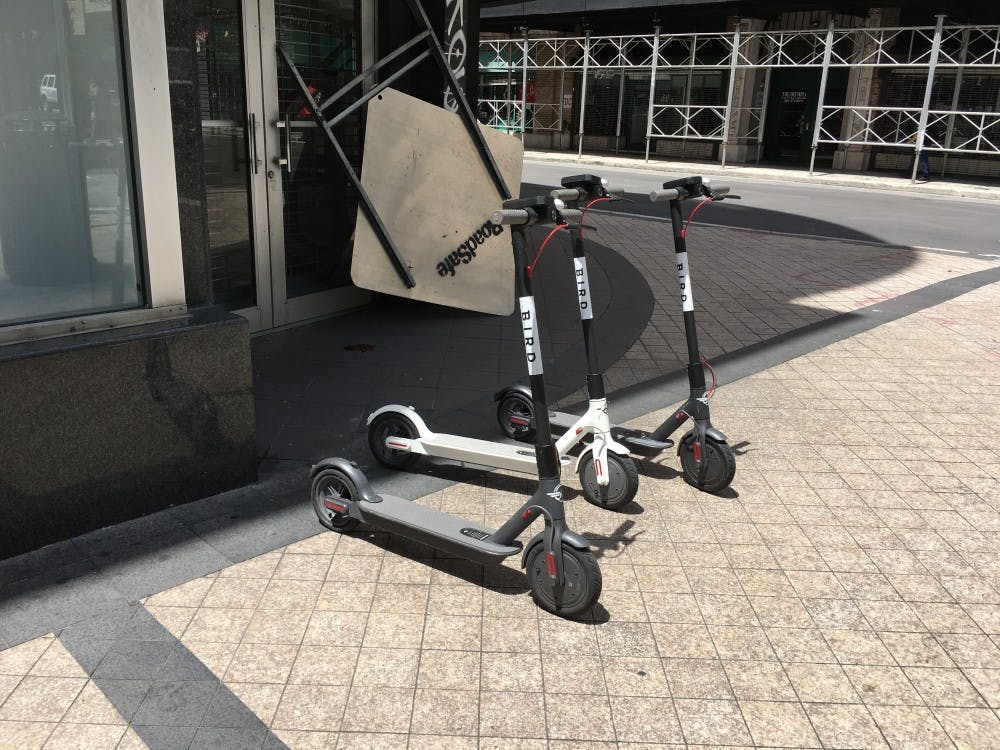In August, residents of Philadelphia may have envisioned a time in the near future when they could zip around the city on an e-scooter. Now, that may no longer be an imminent reality, after Philadelphia city planners hit the brakes on plans to implement dockless e-scooters.
After a city ordinance regulating shared, dockless, two-wheeled vehicles passed this June, e-scooter companies like Bird viewed it as a step forward to bringing scooters to the streets of Philadelphia.
However, upon further investigation of the Pennsylvania state law, city officials found e-scooters to be classified as a “motor vehicle” under the Vehicle Code. Since e-scooters don’t meet the safety and equipment standards for motor vehicles, they can’t be used on roads or sidewalks.
Currently at Penn, inconsistent enforcement and unclear rules have left students unsure when they can and cannot ride their scooters and skateboards on campus.
Some college campuses have welcomed the alternate form of transportation.
In an interview with Memphis Daily News, University of Memphis’ chief economic development and government relations officer Ted Townsend said he views Bird as a positive addition to campus.
“For us, it’s about student success,” Townsend said. “[Bird] is another affordable transportation option for students to get to campus and back to the community they call home.”
Philadelphia transportation officials have said that they want e-scooters to be implemented in a legal manner.
RELATED:
What the new 'Express Pool' service offered by Uber Philadelphia means for commuters
Students say the rules on where they can ride their scooters and skateboards on campus aren't clear
“The nature of the scooter projects are that they are using the public way for commerce and there are vehicles left in the street,” Ritz told Yahoo Finance. “It’s appropriate for the city to take a keen eye to maintain the public benefit.”
E-scooter companies have inundated the streets of cities like San Francisco and St. Louis with their dockless motorized scooters without receiving permission from city officials. Aaron Ritz from Philadelphia’s Office of Transportation, Infrastructure and Sustainability told the Philadelphia Inquirer that Philly has largely avoided such issues.
E-scooters can bring a variety of benefits to a city, such as reducing traffic gridlock. At a cost as low as one dollar per ride and 15 cents for each minute, e-scooters can offer consumers a cheaper alternative to Uber and Lyft.
The dockless aspect of e-scooters means that when users finish their ride, they can simply leave their scooters where they end the trip instead of spending time searching for the nearest dock.









